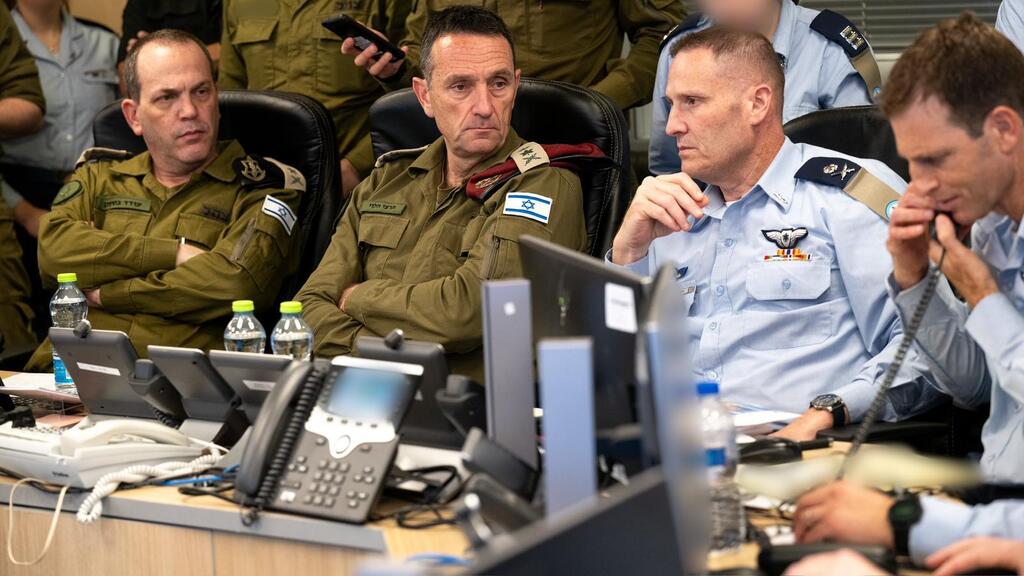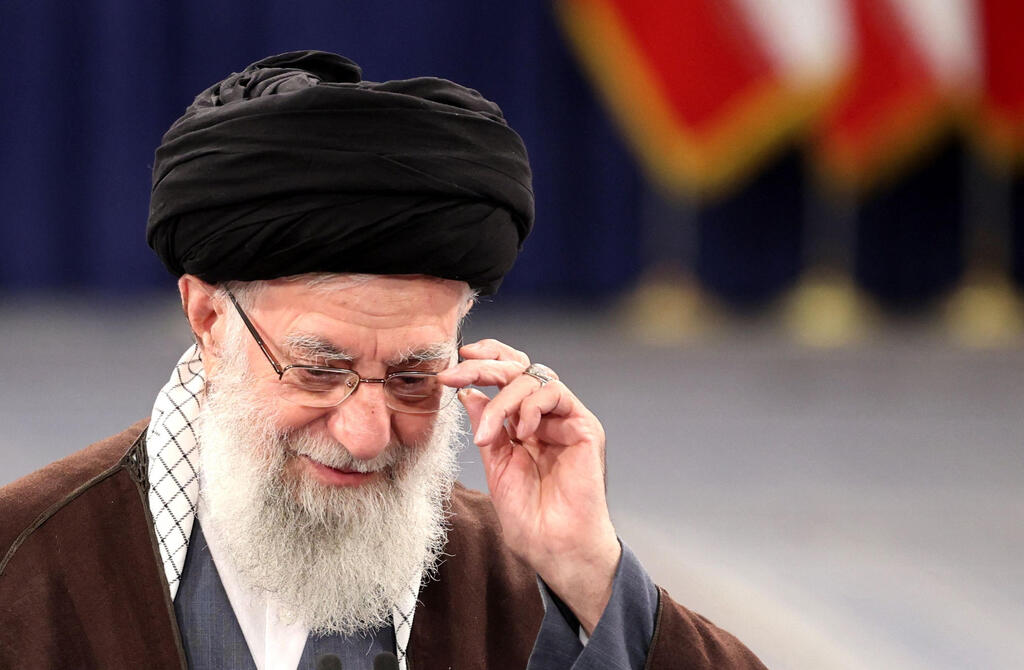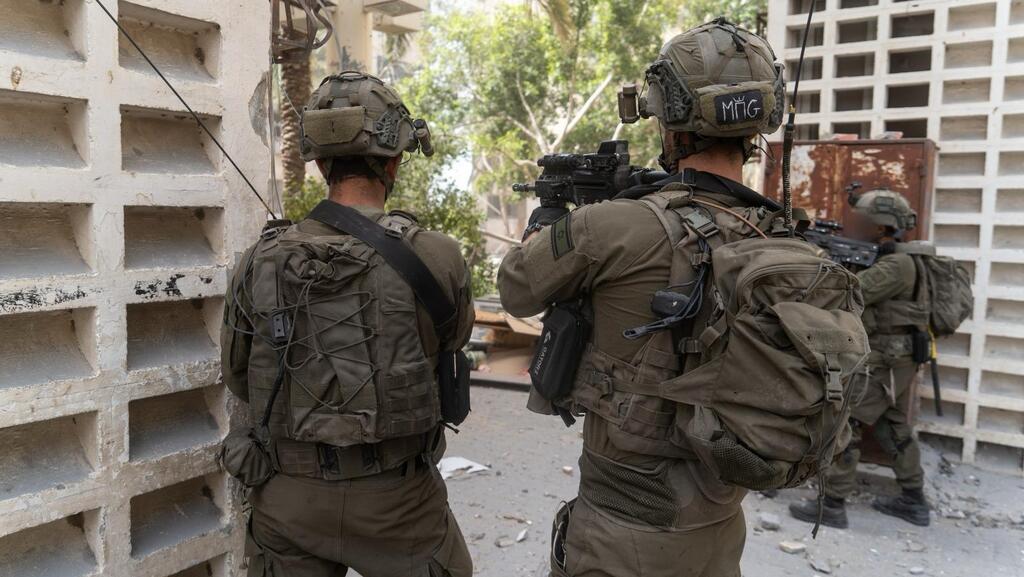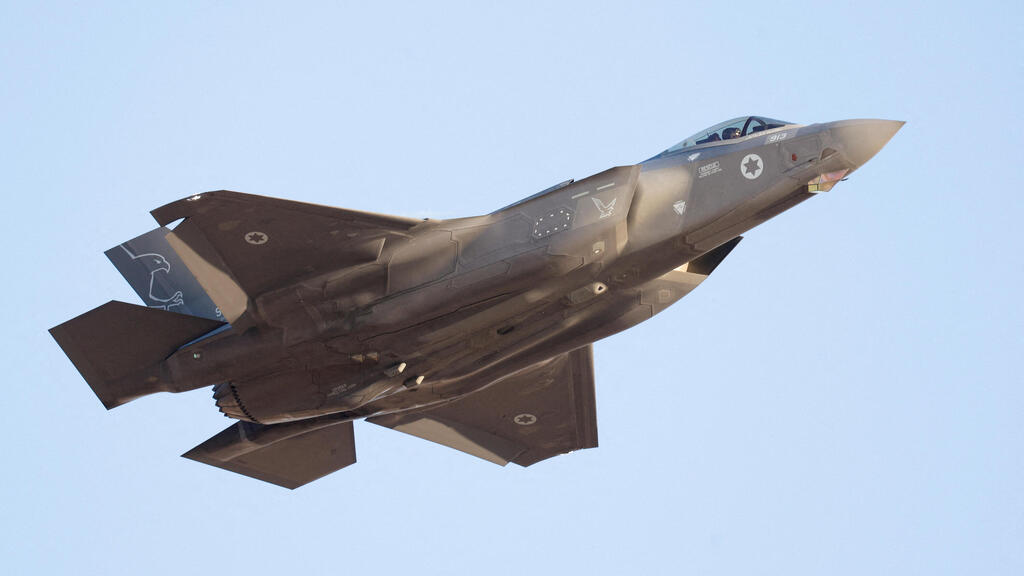Getting your Trinity Audio player ready...
The historic and unprecedented Iranian attack against Israel has failed. Israel, along with the United States and other allied nations, defeated the Islamic Republic's formidable airstrike overnight Saturday to Sunday and even gained an opportunity to restore its diplomatic and moral legitimacy on the international stage, which had been eroded during the war in Gaza.
The Iranian attack’s failure is mainly attributed to the IDF's defensive plan, which relied on precise military intelligence and the exceptional capabilities of the Air Force pilots and their active protection systems.
The main question now is how Israel will respond to this attack, and in what manner. Two opposing vectors will influence Prime Minister Benjamin Netanyahu: Defense Minister Yoav Gallant and Minister Benny Gantz, who were authorized to determine the response by Israel’s War Cabinet.
One vector is the need to deter Iran. The ayatollahs did what they’ve never done before: deliberately attacked Israel aiming to cause significant damage and undermine its citizens’ security. If Israel fails to respond to this attack aggressively, the ayatollahs and their allies in the "Axis of Resistance" – as well as regional countries willing to normalize their relations with Israel – may see it as a weakness.
Israel also has an interest in threatening the survival of Tehran’s regime by exposing its weakness. But this is where the influence of the second vector comes into play, which is no less important and is perhaps even more so: the aggressive demand by the United States, the UK, France, Germany and Canada that Israel refrain from a disproportionate response that could endanger the region’s stability.
Such a regional war would also serve Hamas leader Yahya Sinwar in Gaza. Therefore, Israel has an interest in responding to the Western demand and returning to focus on the wars in Gaza and the northern border, leaving the schooling of Iran for another opportunity.
In any case, response and revenge are dishes best served cold. It’s better to plan them well to ensure their effectiveness, even if it takes time and is done covertly. When considering a response, priority should be given to maintaining Israel’s legitimacy in the eyes of the West.
Deterrence is a passing thing by its nature, whereas the alliance with the West and the regional defense architecture are strategic assets to Israel. Therefore, it is better to comply with US demands to avoid a "hasty response," meaning a powerful one.
A military and diplomatic success
This is how the Iranian attack was foiled: The Americans, the British, the French, and probably the Jordanian Air Force as well, provided early detection of ballistic missiles, drones and cruise missiles launched in the hundreds by Iran.
As a result of the early detection, Israel's air defense system was able to focus its efforts and intercept them before they reached its territory. Out of 100 ballistic missiles fired, only a handful crossed into Israeli airspace.
Similarly, not a single drone or cruise missile out of approximately 200 of them fired reached the country. The U.S. and its' allies intercepted around 70 missiles, with the rest downed by Israeli Air Force fighter jets. Most of the ballistic missiles were intercepted by Arrow and David’s Sling air-defense systems.
This, by all accounts, and as noted by U.S. President Joe Biden, marks a significant victory for Israel in its defense against Iran, which attempted to do two things: First, to target Israeli Air Force bases in Nevatim and Hatzerim, and intelligence gathering sites in the West Bank and the Golan Heights.
The second is the method it used: to attempt to overwhelm Israel's defense systems by launching hundreds of missiles and drones at the same time, thereby overcoming the lack of surprise and U.S. involvement. Iran's solution was in quantity, and it failed.
This is the first time in history that a country has successfully dealt with threats that included over 100 drones and the launch of around 30 cruise missiles against it. By comparison, the Iranian attack on Saudi oil facilities in 2019 included 17 drones and four cruise missiles, which weren’t intercepted.
Israel's air defense system and the IDF's communication system couldn’t have hoped for a better drill, whose technological and operational aspects will benefit them for years to come.
Iran’s failure didn’t only provide evidence of Israel's military intelligence and air superiority, and the exceptional efficiency of its multi-layered active protection system in intercepting missiles, but also achieved diplomatic successes of paramount importance.
5 View gallery


IDF Chief of Staff Herzi Halevi in situation assessment
(Photo: IDF Spokesperson's Unit)
The main one is marked by the West being given the opportunity to correct its course, and allowing Israel to restore its legitimacy and emerge from the political isolation it had been subjected to following the humanitarian crises caused by the IDF's operations in the Gaza Strip.
The Iranian attack brought the regional situation back to its true proportions, wherein Iran and its proxies, including Hamas, are the ones threatening the Middle East’s stability and are poised to ignite a full-scale war due to their hostility and hatred of Israel. Western leaders have already expressed this sentiment, and it will also be reflected in the upcoming discussion on the attack at the UN.
Will an agreement on the northern border follow?
Another Israeli achievement is seen in the fact that the U.S., the UK, France, and even Jordan didn’t succumb to Iran's threats to target them but actively fought back with precise and pre-planned coordination alongside Israel.
The coordination demonstrated between the IDF and the U.S. Central Command, CENTCOM, is unprecedented in its meticulous execution under actual combat situations. This is attributed to CENTCOM Commander Gen. Michael Kurilla, who worked with the IDF closely in the last few days on planning the operation.
In collaboration with the U.S. and regional countries, Israel's strategic dream was practically realized with the "Regional Defense Architecture against Iran." The Americans took on the front line of defense and incorporated British and French fighter jets, who also saw the Iranian move as a dangerous act of aggression that could potentially spark a regional war should Israel have suffered losses.
The U.S., UK, France and Jordan had a clear interest in preventing the attack’s success, so that Israel wouldn’t retaliate with a severe military blow inside Iran's territory, marking a very dangerous escalation.
Iran, naturally, is trying to turn its failure into a victory in the eyes of its domestic audience using fake news, but the Iranian public will know what really happened within days, and this will mark another blow to the regime's credibility and its ability to threaten its surroundings. This is another Israeli achievement in repelling this attack.
There’s no doubt that Hezbollah Secretary-General Hassan Nasrallah also sees the attack’s results, and although it’s clear Iran and its proxies didn’t act using their full strength, they more clearly understand Israel's defense and interception capabilities.
Most importantly, they understand that in any escalation they initiate – whether in Iran’s nuclear program or Hezbollah’s operations in Lebanon – they likely won’t likely suffer a severe blow from Israel but also encounter a joint defense alliance alongside its allies.
In essence, what happened on Sunday may influence Nasrallah to lean toward agreeing to a diplomatic arrangement in the confrontation he launched on the northern border following the start of the Gaza war.
Other regional players have also noticed that the United States’ promises to stand by Israel are ironclad, while the Americans have regained their credibility and deterrence capabilities in the region, which they lost in recent years, as seen in the strained relations with Netanyahu's government in recent times.






